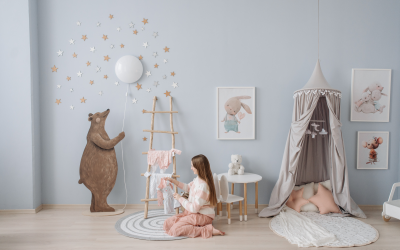Newborn snoring is frequently and has a noisy breathing, especially while sleeping. This breathing can sound like, and even be, snoring! In most cases, these noises do not indicate anything dangerous. Because newborns’ nasal passages are so small, even a small amount of dryness or extra mucus in their noses can cause them to snore or breathe loudly. Sometimes what sounds like snoring is simply how a newborn breathes. A newborn’s breathing usually becomes quieter as they grow.
However, if your baby begins snoring and exhibits other symptoms, you should check to ensure that the noises aren’t a sign of something more serious.
A STUFFY NOSE
The majority of snoring babies simply have stuffy noses. If this is the case, nasal blockages can be cleared and treated with saline drops. Babies’ nostrils grow in size as they grow, and snoring usually goes away as they get older.
Snoring, on the other hand, can occasionally indicate more serious problems.
If your baby’s snoring persists or worsens after using saline drops, Kerrin Edmonds, a pediatric sleep consultant based in California, suggests recording the sounds with a camera or tape recorder and playing them for the pediatrician.
Other Snoring Causes
Snoring can be caused by a variety of conditions, including enlarged tonsils or adenoids, a deviated septum, or even sleep apnea.
“Even though snoring is just our body making a sound, it’s usually a symptom of a larger problem, and all of the potential problems make it harder for our children to breathe and get quality sleep,” Edmonds says.
According to one study, a deviated septum is a relatively common occurrence in the first days after birth, appearing in nearly 20% of all newborns. However, many of these babies show no symptoms of this, and it may go away with time. Other causes of snoring, on the other hand, are more likely to appear in older children than in babies. Though many children snore, only 1 to 3 percent of them have sleep apnea, and they’re most likely between the ages of 3 and 6.
Dr. Thomas M. Seman, a board-certified paediatrician in Massachusetts, advises parents to be concerned if their children are habitual mouth breathers.
A child who snores, eats poorly, or does not gain weight properly may have serious mouth, throat, lung, or cardiac problems. Many of these issues are likely to be discovered relatively early in the child’s life, but they may emerge over the first year.
Laryngomalacia
Snoring in infants can also be an indication of laryngomalacia. The tissues of the voice box, or larynx, soften as a result of this condition. The laryngeal structure is malformed and floppy, causing tissues to fall over and partially block the airway opening.
Ninety percent of children’s symptoms will resolve without treatment. The condition usually resolves on its own by the age of 18 to 20 months.
A breathing tube or reconstructive surgery can be used for the very few newborns with severe laryngomalacia that tries to interfere with breathing or eating. Breathing tubes can occasionally cause infections, which may necessitate reconstructive surgery.
What Causes Newborn Snoring?
Snoring occurs when the soft tissues of the throat relax and cover the airway, according to the Mayo Clinic. When air is inhaled and exhaled, the tissue vibrates, producing an audible noise. According to the Cleveland Clinic, one out of every ten children snores. If you notice your baby snoring on occasion, it is not necessarily cause for concern.
The Cleveland Clinic lists some common risk factors for snoring in children, including:
- Adenoids or large tonsils
- Allergies
- Asthma
- A septum deviation
- Throat infection
Sleep apnea occurs when breathing slows or stops during sleep.
Some children’s snoring is not disruptive enough to cause concern.
Signs of Sleep Apnea
Children may not be able to tell you if they are not getting enough sleep. You can, however, monitor their symptoms to see if they have a more serious breathing problem. According to the Cleveland Clinic, if you notice the following symptoms, your child may have obstructive sleep apnea:
- Snoring that is extremely loud
- Most nights, I snore.
- Gasping or pausing while sleeping with the chin or neck extended and the mouth open
If you suspect your child has sleep apnea, consult your pediatrician.
SHOULD I BE WORRIED IF MY BABY SNORES?
In children, infrequent snoring is not usually dangerous, but regular or severe snoring indicative of sleep-disordered breathing can have serious health consequences.
Obstructive sleep apnea is the most serious concern. OSA causes significant sleep disturbances12 and reduces the amount of oxygen a child receives while sleeping. It has been linked to poor brain development, poor academic performance, cardiovascular problems such as high blood pressure, altered metabolism, and behavioral issues.
Overall, it is clear that OSA can have a significant impact on a child’s quality of life13. The effects of OSA have primarily been studied in older children, but researchers believe that they also extend to younger children, such as 2-3 year-olds.
HOW TO I KNOW IF MY NEWBORN IS HAVING TROUBLE BREATHING
Newborns frequently have abnormal breathing patterns that worry new parents. They can breathe quickly, take long gaps between breaths, and create odd noises.
The breathing of newborns differs from that of adults because:
- They breathe more through their nostrils than their mouth;
- Their breathing pathways are much smaller and easier to obstruct;
- Their chest wall is more pliable than an adult’s because it is mostly cartilage;
- Their respiration isn’t fully developed because they still have to learn to use their lungs and the associated breathing muscles;
- They may still have amniotic fluid and meconium in their airways right after birth.
IS SNORING TYPICAL IN A TWO-WEEK-OLD BABY?
In most cases, these noises do not indicate anything dangerous. Because babies’ nasal passageways are so short, even a small amount of dryness or excess mucus in their noses can cause them to snore or breathe loudly. Sometimes what seems like snoring is simply how a newborn breathes.
CAN BREAST MILK MAK A BABY CONGESTED?
Mother’s milk It doesn’t get any more natural — or simpler — than this. According to Altmann, “a drop or two in the nose can assist remove congestion.” “Let baby sniff it, then give him tummy time; it’ll drain out when he lifts his head.” You can also drain your clogged baby by holding it upright.
Conclusion
Snoring throughout the first six months of infancy was linked to worse cognitive development scores. It is unknown if these infants will snore throughout childhood and, if so, whether the related neurocognitive deficiencies would worsen over time.
Also interesting to read:
- BREASTFEEDING AND BOTTLE FEEDING AT NIGHT
- Newborn Sneezing
- WHEN BABY CONNECTING SLEEP CYCLES
- Newborn wouldn’t sleep unless held
- Newborn dry lips: Sign, Causes and Treatments
- When To Switch Nipple Sizes On Baby’s Bottle – A Full Guide!
- HOW TO AVOID BURNOUT AS A STAY AT HOME MOM
- Reasons CPS can take your Newborn
- Newborn sticking tongue out





